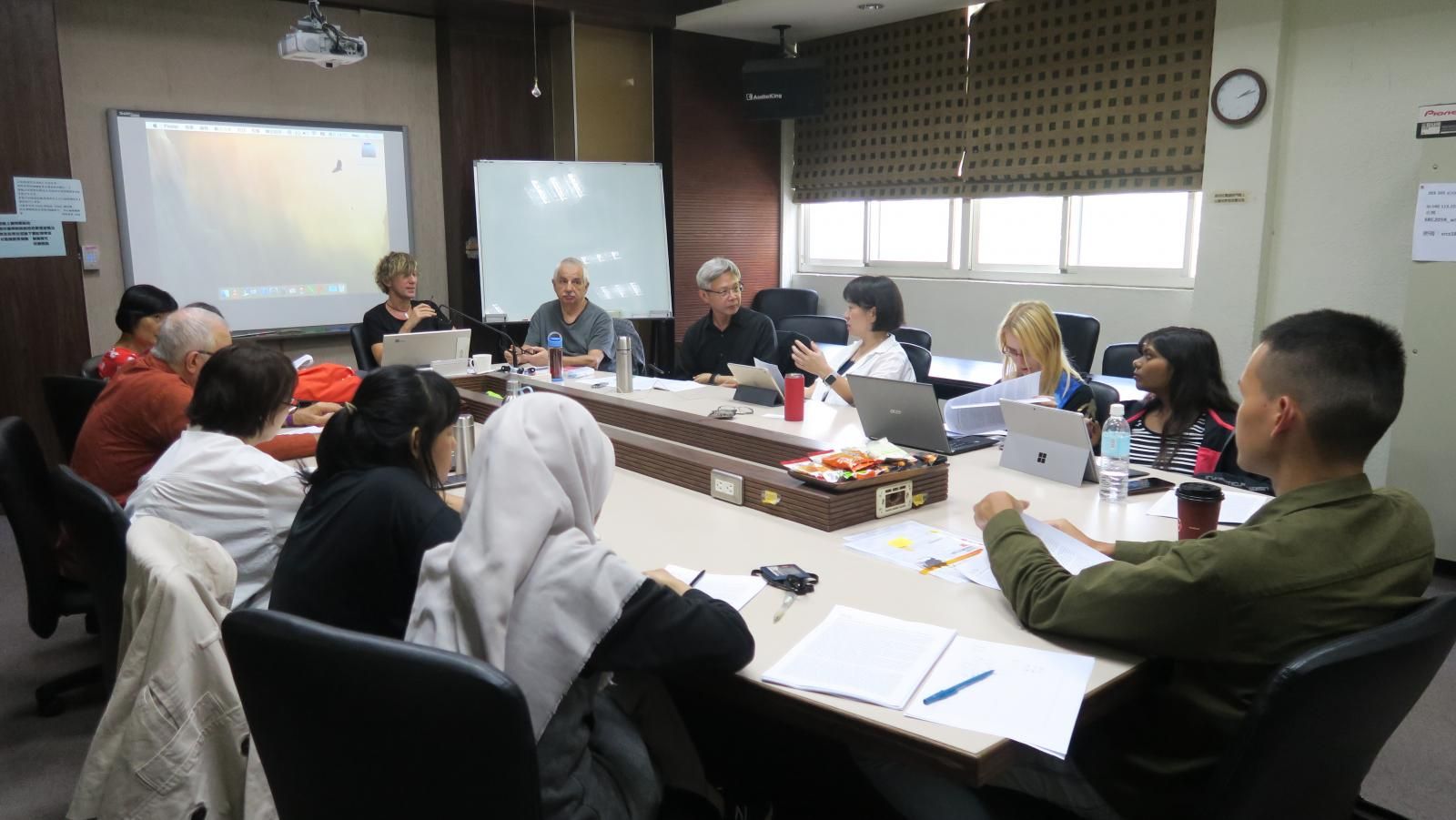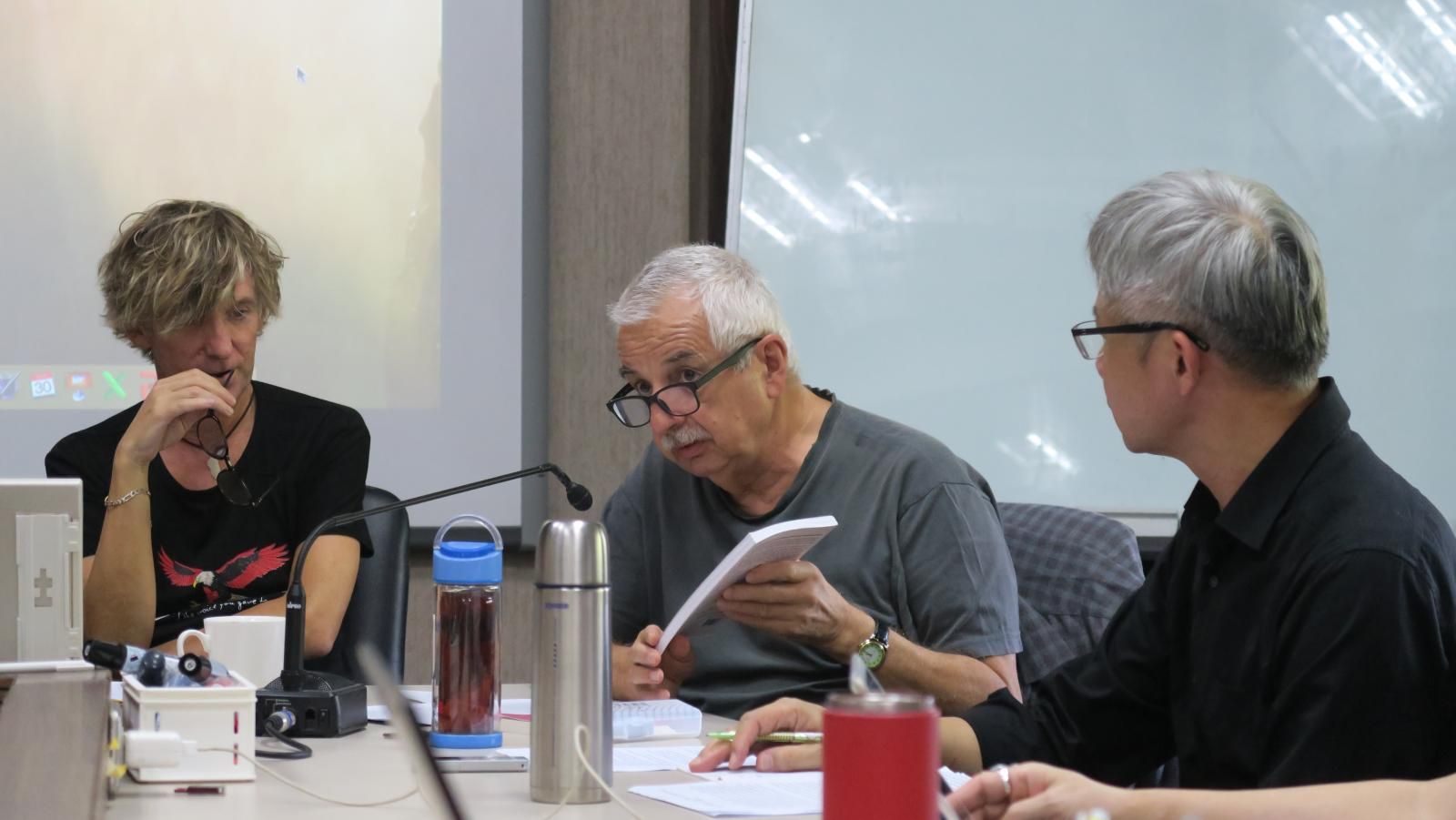

Same-sex Marriage in Taiwan: Can It Evade the Normalization of Gays and Lesbians?
2019-12-03
Same-sex Marriage in Taiwan: Can It Evade the Normalization of Gays and Lesbians? –Alain Naze’s Talk at National Chiao Tung University, October 30, 2019
Jui-an Rae Chou
Is same-sex marriage an epitome of progress for gay and lesbian activism? For Dr. Alain Naze, this is a question worth asking in today’s France as well as in Taiwan. Dr. Naze is currently teaching philosophy in Landerneau, Brittany, and his book Manifesto Against Gay Normalization (2017) made him a controversial figure in debates about gay and lesbian rights in France. In this talk at National Chiao Tung University, Dr. Naze invited us to reevaluate the pursuit of marriage equality through a comparative survey of same-sex marriage legislation in France and in Taiwan.
Dr. Naze begins with his case study in France: he explains that while it is tempting to see same-sex marriage legislation as a continuation, if not an achievement, of the sexual liberation movements of the 1970s, there is in fact a significant break between the two moments. Dr. Naze argues that while the contemporary demand for marriage rights operates within the logic of inclusion, normalization, and assimilation, the sexual liberation movements sought to challenge bourgeois norms and respectability in order to be “governed the least possible” (quoting Foucault). Referencing Foucault and Guy Hocquenghem, Dr. Naze sees the 1970s movements as having opened up new possibilities in forms of relations and in modes of life. On the contrary, the “progress” today in same-sex marriage is an illusion in the sense that instead of obtaining “more freedom,” it merely permits access to heterosexual forms of existence and reduces freedom to its juridical expression.
Turning to the case of Taiwan, which legalized same-sex marriage on May 17th, 2019, Dr. Naze analyzes the event through Taiwan’s global relations and its local specificities. While Taiwan’s gay and lesbian activism has largely incorporated theories and practices from Western models, its politics cannot be simply understood as part of the global LGBT NGO agenda. First of all, Dr. Naze understands the same-sex marriage legislation as the most recent manifestation of Taiwan’s desire for global recognition. By establishing itself as the “Asian champion of human rights,” Taiwan seeks to earn international approval and to highlight its distinction from its Chinese neighbor. Compared to Western cultures, where conjugal status is a personal choice, marriage itself also carries different social nuances in Taiwan. Referencing Valérie Mespoulet’s works on Taiwanese lesbian cultures, Dr. Naze explains that marriage is intimately linked to the Confucian idea of the family and the continuity of lineage in Taiwanese culture. Political and cultural specificities mean that same-sex marriage legislation in Taiwan should not be examined in the same context as its French counterpart. In Dr. Naze’s concluding remarks, while he warns against assimilation of same-sex unions into heteronormativity in Taiwan as in France, he also posits potentials of inventing original and alternative forms of existence and solidarity through the legislation in Taiwan’s local context.
Questions raised during Q&A include the practical as well as radical aspects of Taiwan’s gay and lesbian activism, the Western influence not only on pro-gay activists but also on anti-gay religious groups, the inconsistencies in Taiwan’s “human rights achievements,” and the political division within gay communities in Taiwan. Dr. Naze comments that whether Taiwan’s same-sex marriage legislation opened up or closed off possibilities to generate new forms of living and living together for local communities remains open for future observations. He believes that what is important at this moment is to make sure that the legislation has the revolutionary momentum to influence an entire society, rather than being limited to a minority and becoming a badge for Taiwan’s “progress.” Dr. Naze’s talk inspired discussions about the contrast between the French and the Taiwanese cases, and the audience also brought forth concrete examples from gay and lesbian activism in Taiwan to refine the conversation.


近期新聞 Recent News


